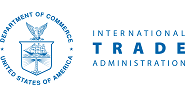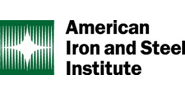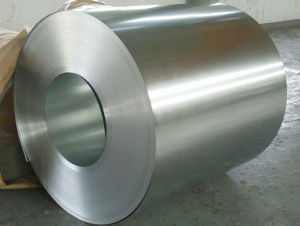
Final Thoughts
U.S. Steel plans to increase sheet prices by at least $30 per short ton (st). That's something we haven't seen for a while.

U.S. Steel plans to increase sheet prices by at least $30 per short ton (st). That's something we haven't seen for a while.

More than nine out of every 10 steel buyers polled by SMU this week reported that mills are flexible on prices for new orders. Negotiation rates have been strong since April and on the rise since early September.

Mill lead times have declined on both sheet and plate products this week, according to steel buyers responding to our latest market survey,

The US Department of Commerce is conducting annual administrative reviews of antidumping and countervailing duty (AD/CVD) orders on certain imports of steel pipe and tube.

Join SMU for a Community Chat next Wednesday featuring Lewis Leibowitz, a veteran trade attorney and one of our most-read columnists. The webinar will be on Oct. 30 at 11 am ET. It’s free to attend. You can register here

SMU's hot-rolled (HR) coil price slipped this week to $685 per short ton (st) on average. We also adjusted our sheet momentum indicators to lower for the first time since July.

Steelmaking raw material prices strengthened for all but one product in October, a change in pace compared to recent months, according to SMU’s latest analysis.

The Canadian government announced a remission process for businesses for recently announced tariffs on Chinese steel and aluminum products and electric vehicles .

While up over the week prior, domestic raw steel mill production remains near one of the lowest rates recorded this year.

When a mapmaker constructs a map, it’s always to the contours of the land. Or sea. That is, the mapmaker doesn’t say, “Look, these rocks really don’t belong here, so I’m not going to include them in the harbor map.” Uncharted rocks, sink ships (along with loose lips).

China’s burgeoning exports are causing major angst all over the world. In the US, the increases are spawning calls for more restrictions on China, some of which might work a bit, but will likely cause more harm than good for the world at large.

The US International Trade Commission (ITC) has decided to conduct full sunset reviews of 23-year-old anti-dumping and countervailing duties (AD/CVD) on hot-rolled (HR) steel imports.

US rig counts continue to hover near multi-year lows, a trend observed since July. Canadian activity remains strong, just a few rigs shy of a seven-month high.

On Friday, the US International Trade Commission (ITC) voted to continue the trade case investigation of corrosion-resistant (CORE) steel imports from 10 trading partners.

We had an October surprise here at SMU on Wednesday. I was working from the CRU office in Pittsburgh, and the internet connection briefly went out. As luck would have it, that happened smack in the middle of a live Community Chat webinar. Fortunately, my colleague David Schollaert stepped in, Zekelman Industries CEO Barry Zekelman rolled with the punches – and the show went on. Could there be any more October surprises in store for us and for the steel market?

The volume of finished steel entering the US market declined in August from July, according to SMU’s analysis of data from the US Department of Commerce and the American Iron and Steel Institute (AISI). Referred to as ‘apparent steel supply,’ we calculate this monthly rate by combining domestic steel mill shipments and finished US steel imports and deducting total US steel exports.

Domestic steel champion Barry Zekelman joined SMU to discuss the latest issues impacting the US steel market.

The latest SMU Community Chat webinar reply is now available on our website to all members. After logging in at steelmarketupdate.com, visit the community tab and look under the “previous webinars” section of the dropdown menu. All past Community Chat webinars are also available under that selection. If you need help accessing the webinar replay, or if your company […]

Prices, demand, inventories, evolving market events... What are buyers and sellers of steel talking about this week?

We just wrapped up another Steel 101 workshop, easily the most hands-on industry workshop on steelmaking and market fundamentals, in this humble opinion. Last week on Tuesday and Wednesday, SMU’s Steel 101 was held in Starkville, Miss.

August now represents the second-highest monthly shipment rate recorded in the last two years, just below the 2.16 million units rate recorded in June.

Nucor’s top executive Leon Topalian has been elected vice chair of the World Steel Association (worldsteel) for the 2024-25 time period.

Flat rolled = 60.8 shipping days of supply Plate = 52.7 shipping days of supply Flat rolled Flat-rolled steel supply at US service centers declined in September, though still seasonally high. September’s report reflects lower demand, stable lead times, and restocking early in the third quarter at a perceived bottom in prices. At the end […]

Domestic raw steel mill production slightly recovered last week, according to the latest figures released from the American Iron and Steel Institute (AISI).

Ankara has placed anti-dumping duties of ranging from 6.10% to 43.31% on hot-rolled steel sheet from China, India, Japan, and Russia. Meanwhile, Malaysia has announced it will investigate allegedly dumped steel wire rod from China, Indonesia, and Vietnam.

Everybody has an opinion about politics these days. More importantly for our readers, though, every business has a bottom line. A popular question in our most recent steel buyers survey asked how uncertainty around the upcoming US presidential election could affect that line.

The Global Forum on Steel Excess Capacity (GFSEC) reaffirmed on Oct. 8 what domestic steel producers have long known—the threat of excess steel capacity never disappeared and is evolving. China’s steelmakers are boosting capacity and exports, echoing the 2016 global steel crisis. There is no doubt that China is successfully weaponizing excess capacity across many industries, and the fatal damage to domestic production and national security undermines the interests of all market-oriented countries. The question now is: How will GFSEC countries respond?

SMU’s latest steel buyers market survey results are now available on our website to all premium members. After logging in at steelmarketupdate.com, visit the pricing and analysis tab and look under the “survey results” section for “latest survey results.” Past survey results are also available under that selection. If you need help accessing the survey results, or if […]

SMU’s next Community Chat webinar will feature Barry Zekelman, executive chairman and CEO of Zekelman Industries – the largest independent steel pipe and tube manufacturer in North America. The webinar will be on Wednesday, Oct. 16, at 11 a.m. ET. It’s free to attend. A recording will be available only to SMU subscribers.

The American Iron and Steel Institute (AISI) this week named two new board members: Neil Tannyan of Hatch and Doug Dunworth of SMS Group.